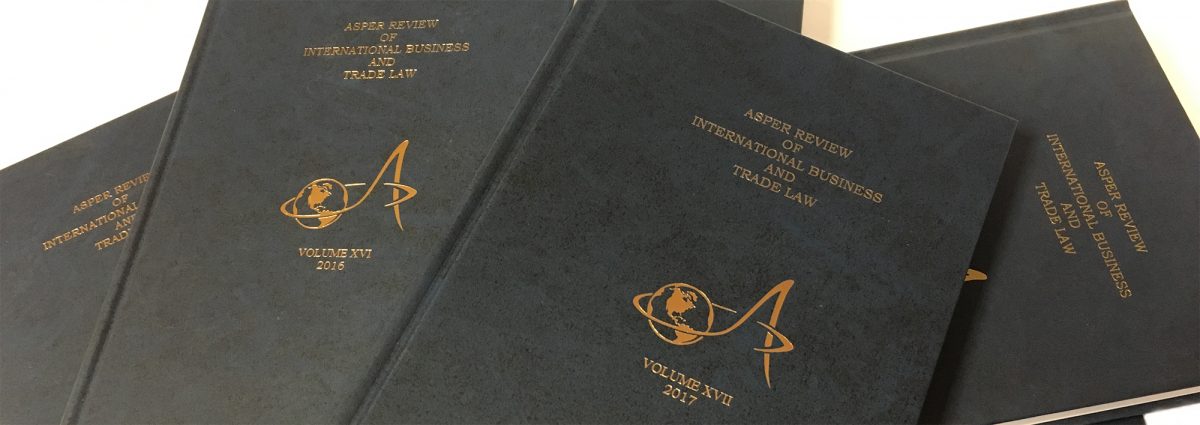
Asper Review publishes essential guide to cybersecurity
Special issue of internationally recognized Business and Trade Law journal benefits legal profession
Dr. Bryan Schwartz, Asper Professor of International Business and Trade Law, is pleased to announce the release of his new co-authored book Cybersecurity and Canadian Law Firms. The volume has been published under the auspices of the Asper Review of International Business and Trade Law.
“It’s typical of the kind of synergies we’re always trying to achieve among the teaching, research and service we provide to our communities,” he said. “As international business is increasingly e-commerce, we added a course in that area to our regular Asper Chair rotation of courses at the University of Manitoba’s Faculty of Law. We can now use the new book as a tool to help teach it.”
Several years ago at the Asper Chair’s annual IntLaw Conference, Schwartz gave a talk on the topic of cybersecurity in the aftermath of an incident where large Toronto firms had been subject to offshore cyber-attacks. Subsequently, with the help of three law students, he set about producing this guidebook.
“One of my inspirations was the American Bar Association’s Cybsecurity Handbook,” Schwartz explained. “I thought something comparable would be useful to our practising legal community here in Canada.”
The guidebook has been released as a special issue of the Asper Review (Volume 21) and will be available in e-book and print format in a variety of open-access or print-on-demand forums, including Amazon.ca.
Volume 20 of the Asper Review was also released last week, and includes an in-depth study on the drivers of secession movements in modern times titled “Revolt of the Rich: How Economic Considerations Influence Separatism in the Age of the Supranational Union.” Co-authored by Schwartz with Éamonn Carroll and Kulvinder Samrai, the article proposes some high-level ideas and tries to prove them through a detailed study of dozens of secession movements. “One idea is that separatist movements have to be viewed in the context of the whole hierarchy of organizations from local government to states within a union to countries to regional organization and global organizations,” Schwartz explained. “Another might be surprising – that separatist movements are largely driven by business and trade factors, not only ethnic tension.”
They are often “revolts of the rich,” he said, “efforts by relatively more prosperous parts of a country to escape what they see as heavy-handed measures by a central government to redistribute their wealth to other parts of the country or otherwise overregulate.”
Schwartz hopes the ideas presented in the piece will have global application. “In some interviews, I have used these ideas to discuss events in Canada, like the re-emergence of a separatism movement in Alberta,” he said.
Both these new volumes of the Asper Review come as Schwartz wraps up co-teaching the annual Asper International Program on Israeli Law and Society, which normally provides Canadian students with the opportunity to visit Israel and attend classes at the Hebrew University of Jerusalem. “Our focus had been on the legal and business dimensions of the emergence of Israel as the Start-Up Nation – a hub of high-tech start up enterprises,” said Schwartz. “The last two years, due to COVID, we shifted the emphasis to “Decision Making in Times of Crisis.”
Despite the necessary changes to the program, almost two dozen law school students from Robson Hall participated.






